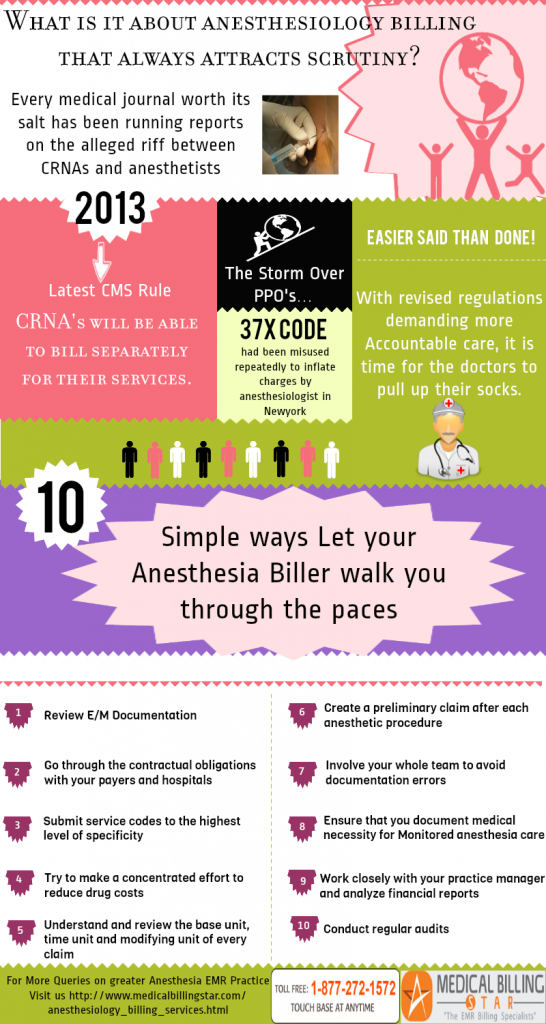The Inside Story Of Anesthesiology Billing !
What is it about anesthesiology billing that always attracts scrutiny ? Every medical journal worth its salt has been running reports on the alleged riff between CRNA’s and anesthetists. The battle has finally drawn to an end with the latest CMS rule. From 2013 CRNA’s will be able to bill separately for their services.
But unfortunately that hasn’t been the only headline grabbing news on anesthesiology, recently.
The Storm Over PPO’s…
An anesthesiologist based in New York has brought to light, the alleged billing malpractices of two major hospitals. According to his statement the 37x code had been misused repeatedly to inflate charges. He also felt that PPO’s prevented insurers from performing claim audits. The dust is unlikely to settle down soon and has brought into focus, the complicated task that is anesthesiology billing.
It is important that anesthesiologists pay attention to contractual obligations and ensure they bill correctly.
Easier Said Than Done !
Billing for anesthesiology is tough, complicated and if you don’t get the basics right, downright crazy ! It is a known fact that most physicians find themselves in a spot, for over billing inadvertently. Or, for not performing regular audits to spot the errors before somebody else does. With revised regulations demanding more accountable care, it is time for the doctors to pull up their socks.
Let your Biller walk you Through the Paces…
Knowing what happens in the engine room is the best billing practice ever. Several factors play a key role in the process. Here is a quick walk-through of the important components that make up your billing.
1. Keep tabs on the various types of anesthesia administered. Using an unnecessarily expensive or stronger drug, can result in billing malpractice.
2. The formula that is most commonly used to bill anesthetic procedures is
Base units + Time units + Modifying units) x Conversion factor = Anesthesia procedure cost.
3. The base unit value is based on the difficulty of a medical procedure and the complexity of the medical decision involved.
4. Time units are another unique component of anesthesiology billing. It denotes the time taken for administering services and modifying units are used to reflect unusual circumstances
5. Maintain updated financial reports.

Leave a Reply